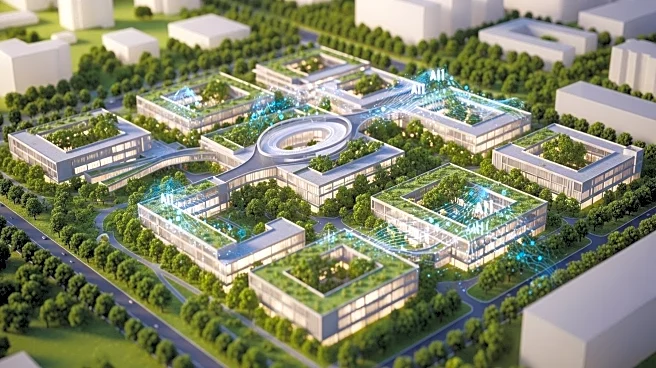What's Happening?
Higher education institutions are increasingly recognizing the limitations of traditional master planning, which typically occurs every decade. This approach often fails to adapt to rapid changes in enrollment, pedagogical shifts, and infrastructure needs. The integration of artificial intelligence (AI) into campus planning is emerging as a solution to these challenges. AI technologies, such as digital twins, offer a dynamic and continuous planning environment by syncing virtual models with real-world data. This allows for real-time updates on space utilization, maintenance needs, and energy use, providing planners with immediate, actionable insights. The shift towards AI-driven planning aims to replace the outdated, resource-intensive processes that require extensive engagement and coordination over 12 to 18 months.
Why It's Important?
The adoption of AI in campus planning represents a significant shift towards more efficient and responsive management of educational facilities. This change is crucial as it addresses the growing need for flexibility in higher education environments, which are subject to rapid changes in student demographics and educational demands. By providing real-time data and insights, AI can help institutions optimize resource allocation, reduce operational costs, and improve the overall student experience. This technological advancement could lead to more sustainable and adaptable campus environments, ultimately benefiting students, faculty, and administrative staff.
What's Next?
As AI technologies continue to evolve, more institutions are likely to adopt these tools to enhance their planning processes. The development of comprehensive dashboards that streamline decision-making for facility maintenance and repair is one potential next step. These systems could further automate data collection and analysis, reducing reliance on anecdotal reporting and manual data entry. Stakeholders in higher education may need to invest in training and infrastructure to fully leverage AI capabilities, ensuring that their campuses remain competitive and capable of meeting future challenges.
Beyond the Headlines
The integration of AI in campus planning also raises important ethical and privacy considerations. Institutions must ensure that data collection and usage comply with privacy regulations and ethical standards. Additionally, the shift towards AI-driven planning may require a cultural change within institutions, as staff and faculty adapt to new technologies and processes. Long-term, this could lead to a more data-driven approach to decision-making in higher education, influencing not only facility management but also academic and administrative strategies.









